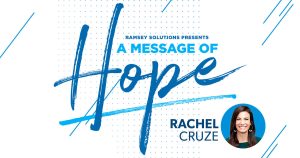Key takeaways
- If you’re struggling with credit card debt, consider going through the debt settlement process.
- To start the process, you could negotiate with the card issuer yourself and maybe use an attorney’s services for legal representation, or you can work with a reputable debt settlement firm.
- If you go through a debt settlement firm, be sure to vet its credentials and make sure it’s a reputable business.
- There are also other ways to tackle your card debt, such as working with a credit counseling firm or, if you have a good enough credit score, transferring your debt to a balance transfer card with an introductory 0 percent APR period.
Credit cards are often useful to bridge the gap between paychecks or account for unexpected expenses, but if you’re a cardholder that only makes minimum payments you’ll likely never manage to get ahead.
Card debt has been rising for a while and hit a record high of $1.13 trillion in the fourth quarter of 2023, the Federal Reserve Bank of New York reports. If you carry a credit card balance and feel overwhelmed, credit card debt settlement is one option to help get your finances back on track. Lenders are often willing to negotiate and help you find ways to salvage your situation.
But what exactly is debt settlement, and what are your options? How do you start the process — and is it the best fit for your finances? Here’s what you need to know about how to settle credit card debt:
What is a credit card debt settlement?
Credit card debt settlement is the process of negotiating with your lender to accept a lump sum settlement that’s lower than what you owe for your credit card debt.
Let’s say you’ve maxed out your current credit card at $15,000 and aren’t getting anywhere with monthly payments. Essentially, you aren’t seeing any significant decline in your debt balance.
The longer the debt remains active, the greater the risk you’ll default entirely, leaving the debt unpaid (and creating a nasty decline in your credit score). While your credit card issuer could keep taking small interest payments until you default, the company is often willing to negotiate for a smaller, lump sum amount that clears the debt entirely. Doing so will likely result in a larger payout for the company than if you continued to make minimum payments year after year.
If you can show that current financial hardships make it impossible to pay back the entire outstanding debt, your credit card company may be willing to take a reduced one-time lump sum payment (such as accepting $10,000 instead of $15,000) to ensure it gets something rather than nothing.
When it comes to settling your credit card debt, you’ve got two choices: Do it yourself (perhaps with the help of an attorney specializing in debt settlements) or use a reputable third-party debt settlement firm. Let’s dig into both options in more detail.
DIY debt settlement
Your first option is to negotiate with your credit card company directly. Not sure how to negotiate credit card debt settlement yourself? Start by getting your paperwork in order — this includes proof of your current debt along with information about your income and expenses. Then, contact your card issuer’s customer service line and ask about the possibility of debt settlement. While the process is similar across issuers, the specifics will differ based on your lender. Here are some examples from different lenders:
- How to settle credit card debt with Capital One: Call the Capital One personal credit card service line at 1-800-227-4825 to start the settlement process.
- How to settle credit card debt with Citi: Call Citi’s customer service line at 1-800-347-4934 for help with your current credit card debt.
- How to settle credit card debt with Synchrony Bank: Find your credit card partner from the Synchrony Bank contact webpage, then log in to your account and you will be redirected to the card partner’s website to chat with a customer service agent.
The percentage credit card companies will settle for depends on your outstanding card balance, your financial situation and the lender’s assessment of how financially beneficial the settlement might be.
Can a lawyer better help make your case?
If you decide to tackle a debt settlement on your own, will it be beneficial to enlist an attorney to help you with the legal aspects? Attorney Leslie Tayne, whose firm focuses on debt relief, advises in an online post that while hiring a debt settlement attorney may not be a good move for everyone, there are certain situations in which you could benefit from their services.
If you have a small amount of debt, maybe less than $5,000, it may not be worthwhile to hire an attorney, according to Tayne. She adds, “On the other hand, if your total debt is much larger or you have multiple accounts, judgments, liens or creditors harassing you by phone or sending letters, hiring a lawyer could be worth it. Even with legal and court fees factored in, there may be an opportunity to save quite a bit of money and resolve the debt once and for all.”
An attorney can also help advise if you would be better off filing for bankruptcy than pursuing debt settlement.
Debt settlement programs
You can also choose to utilize a third-party provider to help start the settlement process. As noted by the Federal Trade Commission, however, it’s worth doing your research. Contact both your state’s Office of the Attorney General and your local consumer protection agency to find a reputable, reliable debt settlement company.
Here’s why: In most cases, these debt settlement services are for-profit, meaning they charge a fee for their services, which can put even greater strain on your finances.
Most of these companies use a long-term savings approach to pay down your debt, which means asking you to put a specific amount of money into an escrow account each month — often for 24 or even 36 months — which can feel like an eternity when you’re already struggling with debt.
In addition, debt settlement services often advise consumers to stop paying their credit card bill entirely, which theoretically demonstrates to creditors that you can’t afford to pay your balance. The problem? Once accounts are delinquent for long enough, many lenders will sell your debt to collection agencies — meaning you’re no longer dealing with your original lender directly and may start getting collection calls from debt collectors.
While the Fair Debt Collection Practices Act (FDCPA) does put limits on collection practices — such as forbidding harassment and specifying the hours during which debt collection agents can contact you — these collection companies are not obligated to negotiate any offers for settlement. This means that you may not be able to reach a favorable agreement even if you’ve spent months paying a debt settlement company.
Bankrate’s take:
This isn’t to say that these companies can’t offer benefits for managing and reducing your debt — it just means you need to be very careful when selecting a service.
For instance, in January 2024, the Consumer Financial Protection Bureau, together with the attorneys general of seven states, sued Strategic Financial Solutions, a debt settlement agency, for allegedly cheating financially struggling consumers of more than $100 million.
In a prepared statement relating to the lawsuit, Minnesota Attorney General Keith Ellison noted, “Consumers came to Strategic Financial Solutions for help getting out of debt and instead of receiving that help, they were ripped off. Preying on people in debt is as reprehensible as it gets.”
Starting the credit card debt negotiation process
No matter which method you choose to settle your credit card debt, your first steps are the same:
- Confirm the amount you owe: Start with a phone call to your card issuer and confirm the amount you owe, then ask for this information in writing. This helps if there’s a dispute about the total amount as you move through the process.
- Consider your options: Look at all your options, including debt settlement, workout agreements or even 0 percent interest credit cards that offer balance transfers.
- Collect your paperwork: If debt settlement is your preferred option, collect all relevant paperwork. This includes your current debt balance, proof of income and information about ongoing expenses to demonstrate you won’t be able to pay down your debt in full.
- Make contact: Reach out to your credit card issuer. Some companies have specific debt-help lines, while others require you to use their general customer service line or start the process via online chat.
- Get everything in writing: If you come to an agreement, get it in writing. Review the terms thoroughly so you understand what’s happening with your account. For example, some credit companies may allow you to keep using your card with a lower limit after you settle your debt. Some may increase your interest rate, while others may make closing your account a condition of the settlement.
Pros and cons of credit card debt settlement
While debt settlement can help eliminate large credit card debt, the process comes with pros and cons.
Pros
- Reduces the amount owed: If your provider is willing to negotiate, you can significantly reduce the total amount you owe. Provided you can pay this amount upfront and in full, debt settlement can help stabilize your finances.
- Eliminates current credit obligations: Debt settlement eliminates your current card debt once you pay the settlement amount.
- Helps you avoid bankruptcy: If your debt is substantial, personal bankruptcy may be your only other option. The debt settlement process helps you avoid bankruptcy by whittling down the credit card balance you owe.
- Offers peace of mind: Without your credit debt piling up, you can focus on other financial goals and start saving for the future.
Cons
- Debt settlement will affect your credit score: Lenders will typically report your settlement to all three major credit bureaus and note that although the debt was cleared, it was not paid in full. A debt settlement will negatively impact your credit score for seven years.
- Could lead to the sale of your credit debt: If you don’t pay your balance month after month in an attempt to increase the likelihood of a settlement, your credit card company may sell your debt to a collection firm.
- Settlement is not guaranteed: Even if you can demonstrate economic hardship, lenders aren’t obligated to offer settlements. This is especially problematic if you’re paying a debt settlement company for help.
- May cost more than you save: Over time, the fees associated with credit settlement companies can pile up, eventually costing you more than the debt itself.
Alternatives to credit card debt settlement
While the debt settlement process can be helpful for a lot of people, that doesn’t mean it’s right for everyone. Before committing to debt settlement, consider doing the following:
-
A popular debt settlement alternative is to sign up for a balance transfer credit card. These cards often come with 0 percent introductory annual percentage rate (APR) offers that last for 12 or 18 months. Having a long introductory period with no interest will allow you to work on paying down the principal balance of your card rather than only the interest portion. The caveat? You typically need a solid credit score to successfully apply for 0 percent balance transfer cards, so it’s best to get started on this process immediately rather than waiting for debt to pile up.
-
If your credit cards aren’t maxed out and you still have some financial flexibility, consider creating a debt payment plan.
Start with a basic budget. Collect data on how much you’re paying for debt, living expenses and other products and services each month, and see where you can cut back. If there’s room in your budget, focus on the smallest debt you have and pay it down as quickly as possible, then move to the next smallest and keep going on in this manner — this snowball method both offers visible progress and jump-starts the process of getting you back in the black.
-
Nonprofit credit counseling services from a licensed credit counselor is another option to consider. Counselors from trusted credit counseling agencies can help you identify budget strategies and create plans that help you tackle your debt as quickly and safely as possible.
The bottom line
Settling credit card debt can help reduce the total amount you pay and get your finances back on track. If you’re not sure how to negotiate debt settlement on your own, you could get started with a reputable settlement company. If you want to tackle the process yourself and you have a lot of debt or are facing lawsuits, a debt settlement lawyer could help you find your footing better. Know your rights, understand the risks and find the solution that offers the best debt reduction in the shortest amount of time.
Read the full article here










